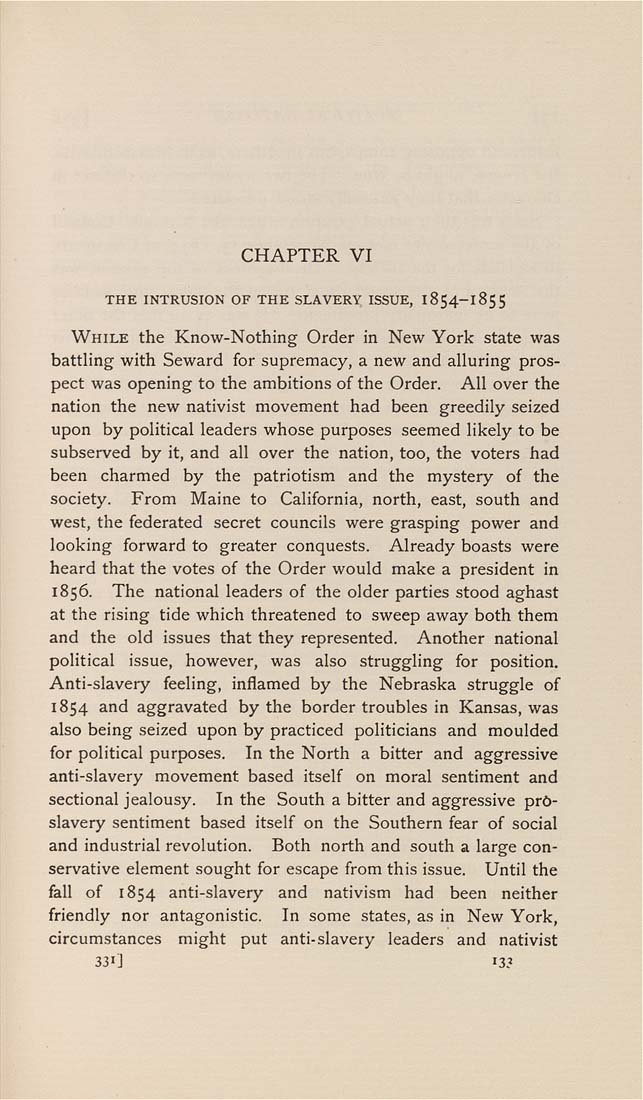CHAPTER VI
THE INTRUSION OF THE SLAVERY ISSUE, 1854-1855
While the Know-Nothing Order In New York state was
battling with Seward for supremacy, a new and alluring pros¬
pect was opening to the ambitions of the Order, All over the
nation the new nativist movement had been greedily seized
upon by political leaders whose purposes seemed likely to be
subserved by it, and all over the nation, too, the voters had
been charmed by the patriotism and the mystery of the
society. From Maine to California, north, east, south and
west, the federated secret councils were grasping power and
looking forward to greater conquests. Already boasts were
heard that the votes of the Order would make a president in
1856, The national leaders of the older parties stood aghast
at the rising tide which threatened to sweep away both them
and the old issues that they represented. Another national
political issue, however, was also struggling for position.
Anti-slavery feeling, inflamed by the Nebraska struggle of
1854 and aggravated by the border troubles in Kansas, was
also being seized upon by practiced politicians and moulded
for political purposes. In the North a bitter and aggressive
anti-slavery movement based itself on moral sentiment and
sectional jealousy. In the South a bitter and aggressive pr6-
slavery sentiment based itself on the Southern fear of social
and industrial revolution. Both north and south a large con¬
servative element sought for escape from this issue. Until the
fall of 1854 anti-slavery and nativism had been neither
friendly nor antagonistic. In some states, as In New York,
circumstances might put anti-slavery leaders and nativist
331] 13?
|








